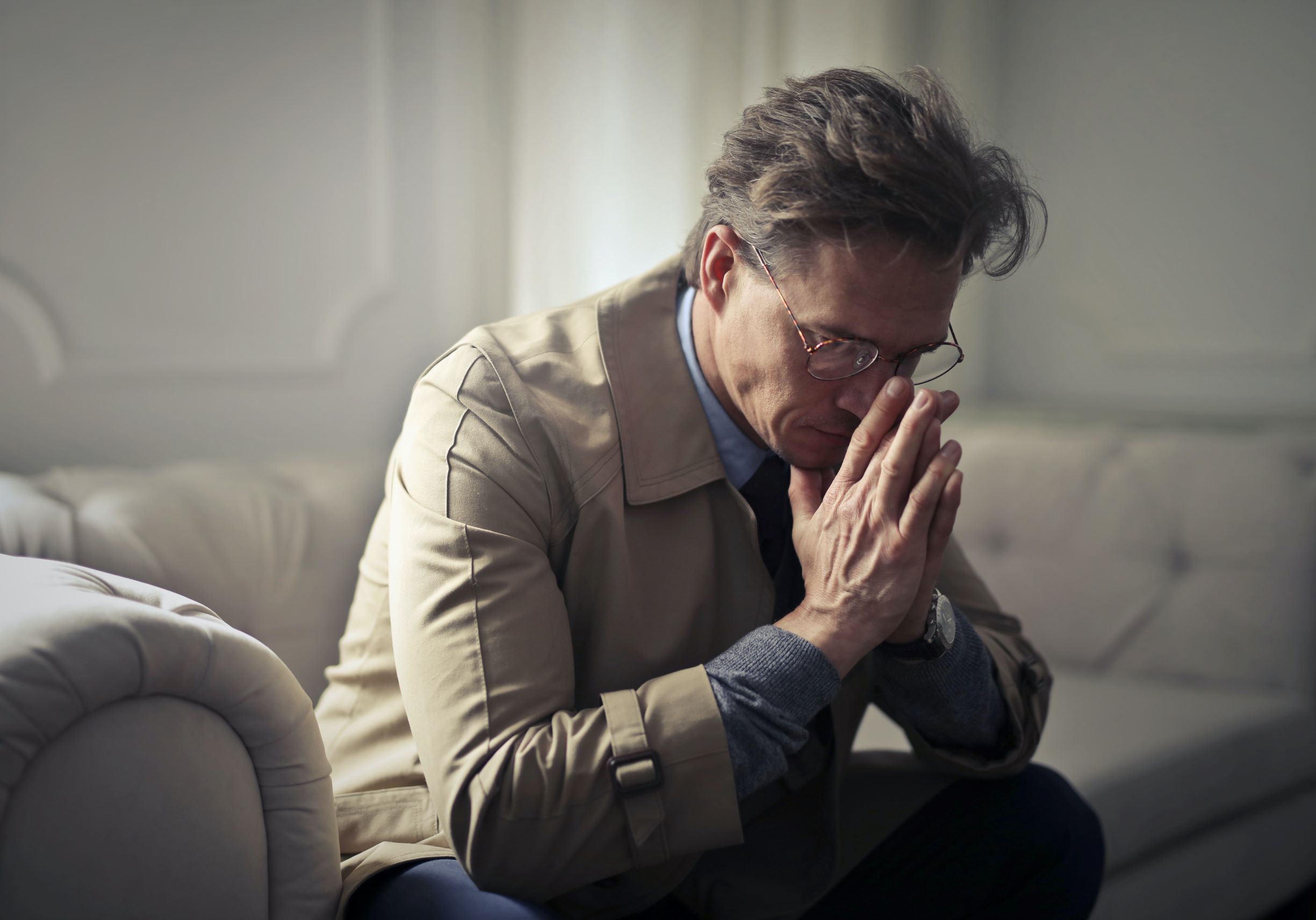Fear is a natural instinct, a powerful emotion that stems from your perception of a threat. Sometimes that threat is real and sometimes it is not. When you have a lasting and irrational fear of a certain situation or a certain object, that is known as a phobia. Men and women experience similar fears, but there are many phobias most common in men.
Uncontrollable and Lasting Fear
Phobias are considered to be anxiety disorders. They are one of the most common types of mental disorders among adults in the US, falling into three categories. In essence, a phobia is an uncontrollable and lasting fear that can lead to a crippling avoidance of an object or situation. Phobias can also lead to panic attacks.
Among the types of phobias, 10% of individuals in the US have specific phobias, 7.1% have social phobias, and 0.9% have agoraphobia, the fear of situations in which escape is difficult.
Three Type of Phobias
Agoraphobia is one of three types of phobias. People who are diagnosed with this condition may be fearful of being alone outside their own home or have a fear of being “trapped” in a crowded place. Agoraphobia is usually associated with panic disorder.
Social phobias include a fear of public speaking, which is one of the most common fears among young people and adults. It can also be a fear of meeting new people or of being in certain other social situations.
Specific phobias involve specific objects or situations. A fear of clowns, for example, is a specific phobia.
Phobias Most Common in Men
Recent statistics indicate that the number one fear for men is acrophobia, the fear of heights. Acrophobia is, in fact, one of the more common phobias for both men and women. Although many people may not be comfortable at the top of a tall building or a high bridge, men with acrophobia have serious panic attacks when confronted with a situation that presents them with a view from a high place.
Additionally, men have been found to have a fear of:
- Snakes (ophidiophobia)
- Dentists (dentophobia or odontophobia)
- Injections (trypanophobia)
- Thunder (astraphobia)
- Being maimed (dysmorphophobia).
In addition, nearly half of men are afraid of seeing a doctor (iatrophobia) and over a third are worried about going bald (phalacrophobia).
Common Fears Among Men
Fears that are not necessarily categorized as phobias have also been identified as being common in men, including the fear of:
- Failing – perhaps being afraid of disappointing others or themselves, and/or of living with the anticipated sense of shame they believe accompanies failure.
- Being incompetent – fearing that they don’t have what it takes to accomplish a task or to succeed in a job or relationship.
- Being weak or being perceived as weak – one of the biggest fears for men, as they tend to believe they are not supposed to be weak or even to be perceived as such.
- Being irrelevant – fear and stress in wanting their lives to mean something.
- Appearing foolish – keeping men from speaking up in groups or taking on a challenge as they fear losing credibility.
Complications of Phobias
A phobia that is not treated can seriously impact a man’s quality of life. When someone is afraid of something, they might go to great lengths to avoid the place, situation, or object. This situation can cause significant anxiety in the individual. It can also cause other complications in the person’s life. For example, a fear of flying can keep someone from being able to travel for work or for enjoyment.
In addition, individuals who experience phobias that disrupt their lives may be twice as likely to suffer from an addiction to drugs or alcohol. The anxiety that stems from a phobia can be life threatening as well, increasing the risk of a man suffering from heart disease.
Mental Health Treatment for Men at PACE
If you are experiencing a phobia with anxiety and panic attacks, reach out to the professionals at PACE Recovery. We optimize your recovery success with integrated treatment that will address both your mental health and any substance use issues you may also have developed as a result of your phobia. We address your whole person, including your spiritual, medical, psychosocial, and relational facets.
At PACE, we understand the challenges you are facing during this period of isolation and uncertainty. We’re here to help. Our men’s-only programming has transformed hundreds of lives over the years, and we believe that you can recover. To learn more about our mental health and addiction services, contact our Admissions team.



